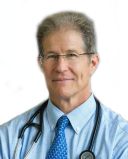Health
How Health Can Emerge in Challenging Circumstances
We may not think much about good health until we get sick or injured.
Posted April 3, 2024 Reviewed by Lybi Ma
Key points
- Using what is positive and powerful in your life can help break down barriers to well-being.
- The barriers to exercise, or any health practice, may be financial or related to the zip code where you live.
- Having strong social ties and a sense of belonging matters for both mental and physical health.
- Small changes that work with your situation and lifestyle have a better chance of sticking.

Good health is something many of us take for granted. We may not think much about it until we get sick or injured. And for many, the factors that go into good physical health—restful sleep, clean and safe surroundings, high-quality food, and recreation—are not always readily available.
Health privilege is the idea that some of us can create health because we have more financial and material resources, while others cannot be healthy because they lack these things. While this is sometimes true, especially when we think about obvious resources such as health insurance, a whole-person approach to health can help level the playing field.
Strategies to help health emerge even in challenging situations can be as simple as thinking about what health means to you. Learning about your health, asking questions, and using what is positive and powerful in your life can help break down barriers to well-being.
When the Realities of Life Get in the Way of Health
If I gathered a group of my patients and asked about daily physical activity, I would hear that some go to a health club or work with a trainer. Others participate in daily group exercises or work out at home by following along with videos. Still, others lack the time or space to exercise. They may work long hours, live in crowded spaces, or hold physically demanding jobs that make exercising for health unappealing. Some members of the group are physically fit, and others need to boost that aspect of health.
The barriers to exercise, or any health practice, may be financial or related to the zip code where you live. For example, if a patient is struggling to pay the bills, paying gym dues is not an option.
There may be location barriers if people live in an isolated or unsafe area where exercising outdoors is not practical. There may be cultural barriers, too: taking time for personal health and exercise may be seen as selfish, vain, or a waste of time.
What Helps Health Emerge?
As a physician, I’ve learned to ask questions including: “What do you need to be healthy?” I work with other physicians and healthcare providers to encourage them to do the same. We learn how we can help people by first asking what they want and need because creating health doesn’t look the same for everyone.
Elena Rosenbaum, MD, is the medical director of a New York-based organization. She tells the story of a patient whose blood pressure remained high despite four different medications. It turned out that his problems ran much deeper than the physical level.
The patient had been the main caregiver for his son, who recently died after a long illness. This father (the patient) was now working several jobs and had little time or energy to grieve or to care for his physical health.
“We asked him what was positive in his life,’” says Rosenbaum. “His church and faith were a strong source of support. We encouraged him to find healing through spiritual practice and being with members of his congregation.” They also helped him find a counselor to support his mental and emotional health.
Communities as a Source of Emerging Health
“Our patient’s blood pressure was not purely a medical problem,” Rosenbaum says. To create better physical health, he first needed help dealing with stress and grief. And he had access to an enormous source of strength: his church community.
Having strong social ties and a sense of belonging matters for both mental and physical health. Does your neighborhood have a community center? A community garden? Your local library can be a great place to find arts and crafts groups, and most librarians are happy to connect you with a book club or anything else you would like to find in your area. As with Rosenbaum’s patient, places of worship can provide a supportive community, and many can connect you to resources. All these places can also be sites for physical and mental health care, including exercise classes, blood pressure checks, and group therapy.
The building blocks of whole-person health are much more diverse than simply having money for organic food or a health club membership. Seeing community and cultural assets as building blocks of health opens up more possibilities for healing, even in communities that have few obvious resources.
Tap into Your Culturally Relevant Healing
It's been said many times: There are cultural paths to healing beyond Western medicine. Holistic therapies like acupuncture come from ancient Eastern medicine traditions. Prayer, meditation, and ceremony play central healing roles in many Indigenous cultures.
Rather than assuming any one treatment is best, your health providers should have open conversations with you about what healing means to you. Yoga might work for some, while others might connect more deeply with their cultural or religious practices.
Starting Where You Are
Instead of assuming you don’t have the time or money for healthy practices, consider what your culture and community have to offer. Can you ask a friend to teach you a few cooking skills so that you can cut down on the amount of processed food your family eats? What about trading childcare duties so each of you can take a stress-relieving solo walk a few times a week? If your culture has a tradition of weekly family gatherings, think about how these can be stress-relieving opportunities and how you can share healthy foods there.
Small changes that work with your situation and lifestyle have a better chance of sticking. A cohesive community is better able to advocate for improved sidewalks and more streetlights, which in turn can make it safer to play and exercise outside. The benefits of outdoor play for children and time outside for adults are well known. A neighborhood community garden can promote not just healthy eating but stronger social ties.
Good health should never be a privilege for the few. By starting from your own lived reality, you can find ways for health to emerge— in mind, body, and community.




